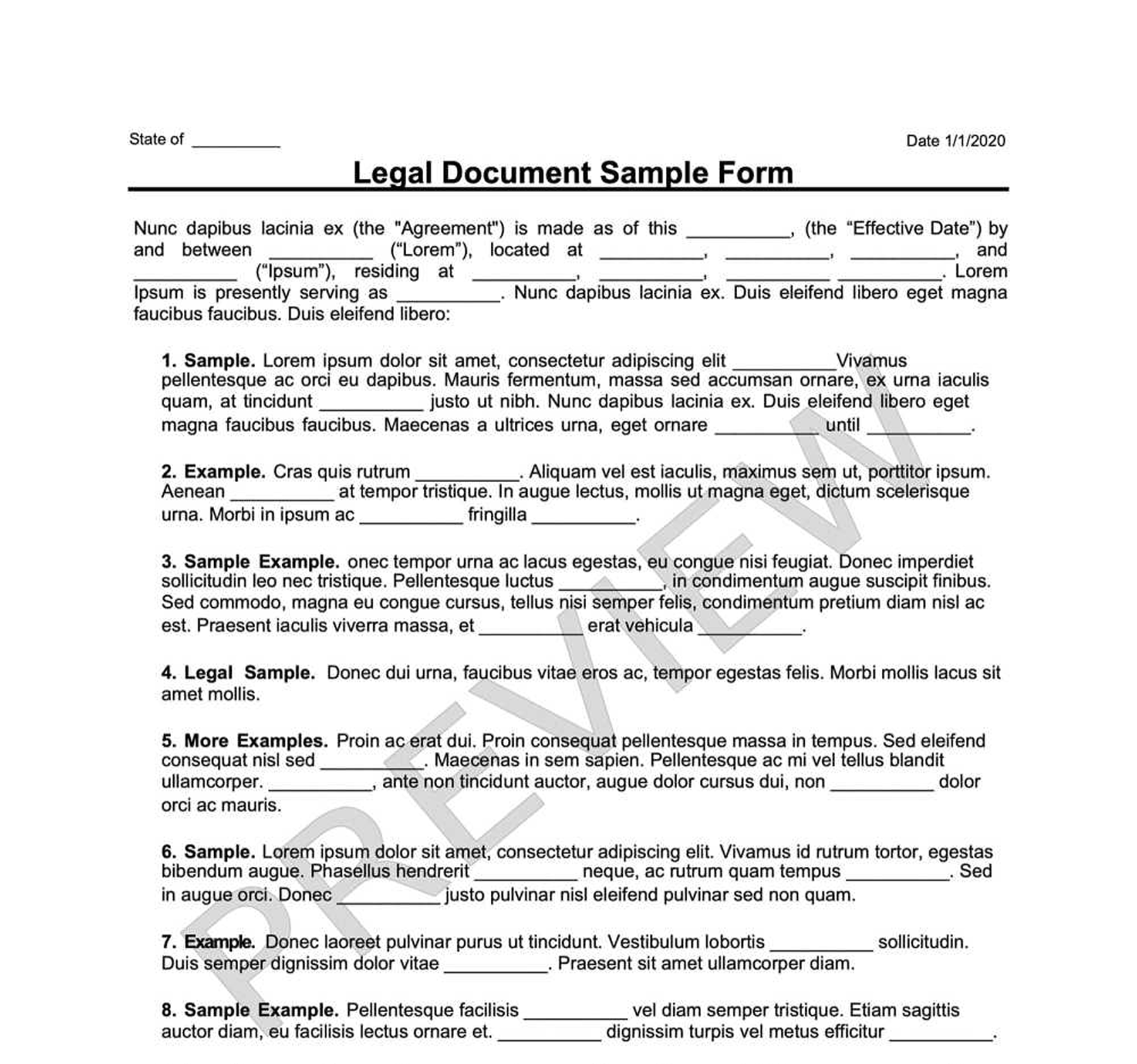LLC Resolution
An LLC Resolution is used to document an action that needs to be voted on.

How it Works
Build your selected document.
Answer a few simple questions with step-by-step instructions.
Print & download forms instantly. Sign & make it legal.
What Is a LLC Resolution?
When an LLC is formally established after filing the articles of organization with a state's secretary of state, it's free to pass resolutions. Unlike corporations, LLCs are not required by law to use resolutions, nor are there any clear guidelines for doing it.
There are still benefits to passing resolutions within an LLC. For a start, LLC members and managers are bound by what's decided in the resolutions. It's particularly useful for multi-member LLCs to pass resolutions and create an operating agreement for the company.
What Is an LLC Resolution?
One essential thing to keep in mind is that any LLC member has the right to propose a resolution. Whether the resolution will pass depends on most members voting in favor with the exact percentage determined by the rules governing the LLC. LLC resolutions are used for many purposes.
Some of the most common resolutions requiring voting have to do with opening a bank account or applying for a loan. An LLC resolution is also crucial when it's time to vote for a new LLC member or delegate LLC authority. Other uses may include buying real estate, approving profit distributions, and signing significant contracts.
Other Names for LLC Resolution
Depending on your state, an LLC Resolution may also be known as:
-
Limited Liability Resolution
Who Needs an LLC Resolution
LLCs are not required to pass resolutions, but some of them do so anyway. Sometimes banks and lenders may ask to see a relevant LLC resolution. In particular, this may be because they want to make sure who has the authority to sign documents for the LLC. Or if they're going to make sure that the company's records are in order.
Why Use Swyft Forms for Your LLC Resolution
Customized for you, by you
Create your own documents by answering our easy-to-understand questionnaires to get exactly what you need out of your LLC Resolution.
Specific to Your Jurisdiction
Laws vary by location. Each document on Swyft Forms is customized for your state.
How to Create an LLC Resolution with Swyft Forms
Your LLC resolution should be concise and precise. It also must be accurate and contain all the necessary information. Having a suitable template in front of you when it's time to produce the resolution could save much time.
Let Swyft Forms help with our extensive library of attorney-vetted legal forms. The process is fast and easy. All you have to do is fill out our easy-to-understand questionnaire. Once complete, simply download your form as a PDF or Word document from your secure online account.
What Information Will I Need to Create My LLC Resolution?
To create your document, please provide:
-
Title of document: Give the resolution a descriptive name.
-
LLC details: The legal name of the company, the governing state, and the official address of the LLC.
-
Date and location: The date and place the resolution is reached.
-
Resolution: All the details of the resolution or resolutions.
-
Certification: The LLC's officer or secretary will review the document.
-
Signatures: The LLC's officer or secretary will have to sign the document.
LLC Resolution Terms
-
LLC: Limited liability company
-
Corporation: A company structure or an entity bearing that structure and enjoys most of the rights afforded an individual
-
Member: An individual who has an ownership interest in an LLC
-
Managing Member: The member of an LLC who's in charge of its operations
-
Manager: A non-owner hired to manage an LLC
-
Agenda: List of items discussed in a meeting
-
Registered office: An LLC's office where a registered agent receives all of the LLC's paperwork
LLC Resolution Signing Requirements
After an LLC resolution has been passed, all the members who voted need to sign the document. The person designated to write and store the resolution is also required to sign it. However, there's no need to involve a notary public for the document to be valid, as it's an internal document rarely used outside the LLC.
What to Do with Your LLC Resolution
After the LLC resolution has been signed and adopted by the company, it should be kept with the rest of the company's written records. A hard copy is always good to have available too.
The designated person responsible for the resolution can distribute it digitally to the members and managers for record-keeping purposes.
Other Names for LLC Resolution
- LLC Resolution Form
- LLC Resolution Document
- LLC Resolution Agreement
- LLC Resolution Contract
- LLC Resolution Template
- LLC Resolution Checklist
Who Needs a LLC Resolution?
Why Use Swyft Forms for Your LLC Resolution
Customized for you, by you
Specific to Your Jurisdiction
Why choose Swyft Forms?
Create professional documents for thousands of purposes.
Make unlimited documents and revisions.
Our documents are vetted by lawyers and are applicable to all 50 states.
